Society

A migrant worker in Doha | Alan Gignoux/Alamy Stock Photo
Migrant workers took loans to work on the World Cup. For many, their creditors are waiting when they return
These days, Suman Mia works a power loom in a factory on the outskirts Dhaka, the capital of Bangladesh. He stands 15 hours a day. "I go to work at 3pm, and come home at 7am," he said. "I have very little time to sleep, but there is nothing I can do about it. I have no better job opportunities."
Mia, 30, had once been more hopeful about his prospects. He had dreamed of the money he could earn by going abroad. He had dreamed of Qatar. The gulf nation was hiring foreign workers to build infrastructure for the World Cup, and many around him were going. So he went too.
Seven months later he returned, dreams shattered. "I was fired from the job four months before the end of my contract," he said. "I faced my worst period. A huge debt burden was hanging over my head."
The ability to work in Qatar had not come cheap for Mia. Like many migrant workers, he had borrowed money to finance his journey - 300,000 Bangladeshi takas (nearly $3000) at an interest rate of 15 per 1000, paid every week. By the time he returned home, he owed his creditors half a million takas.
"My father took a job at a power loom unit and my mother worked door to door as a seamstress," he said of the lengths his family went to service the debt. "Although I managed to pay off the loan, I was left destitute."
Mia's neighbour, who returned from Qatar around the same time, was even worse off. He had sold his land to repay his loan, he said, but "I am still Tk 80,000 in debt." That's about $800.
The cost of work
Mia and his neighbour are not exceptional cases. About 400,000 Bangladeshi workers were employed in Qatar before the pandemic, according to the Bangladesh Labour Wing in Qatar. About 360,000 are thought to still be there. Many workers were recruited at high cost to themselves, and will return - if they return at all - in debt.
According to the Bangladeshi 2020 Cost of Migration Survey, the average cost of recruitment for male migrants going to Qatar between 2015 and 2018 was 421,000 takas. This included: passport, visa, and medical fees; a work permit; internal and international travel costs; and sundry other charges. For women the average cost of recruitment to Qatar was substantially lower, at 67,000 takas. The report attributes the difference to the type of employment: most women from Bangladesh are recruited as domestic workers, "and the recruitment costs of domestic workers was very low."
To recover this outlay, the survey found that men need to spend at least 18 months earning money in Qatar before they break even. Women need around six months. If they are sent home too early, or if they fail to earn enough while there, they will return to debts that they will struggle to repay.
Sometimes this can happen through layoffs. Mia said hundreds of workers like him - electricians, plumbers, masons, carpenters, tile fitters - were forced to return to Bangladesh in 2018 when his company decided to shed workers to cut costs.
At other times, injury, arrest, or a lack of documentation can threaten to upset the balance. Sekender Ali, 45, said he spent 550,000 takas to go to Qatar four years ago. He worked as a welder, but said that he was unable to save money since his wages were so low. "All the money I earned was spent paying off debt," he said.
Ali found himself unable to renew his work permit earlier this year, but because of his debts back home he remained in Qatar and continued to work. This came to a sudden stop, he explained, when he slipped and injured his ankle on a construction site. He went to the hospital, and as he was leaving he had his documents checked. He was deported four days later.
Working illegally, however, had served its function. Ali said he managed to pay off the debt that got him to Qatar just before he was sent home. He has now recovered, and recently took out a new loan of 600,000 takas to go to Saudi Arabia. "I don't have any savings or property to do anything at home, and there is less opportunity to get a job in the country," he said. "So I decided to go abroad again."
The debt remains even after the cup is won
Both Qatar and Bangladesh have recognised the problem, even though the measures they've instituted haven't eradicated it.
Qatar's labour laws prohibit companies from charging recruitment fees to overseas workers. The committee responsible for creating the World Cup's infrastructure also imposed worker welfare standards on its contractors in 2014. Among other provisions, contractors were directed to ensure that recruitment fees are not collected from its overseas workers, and to return any fees that are collected.
Despite this, an external audit on worker welfare in relation to the World Cup showed that, in 2021, migrant workers across all nationalities were still paying on average $1,333 for their recruitment. Bangladeshis, however, paid nearly twice that, more than any other group. The average recruitment fee for a Bangladeshi migrant worker was $3,136, and 83% of Bangladeshis surveyed reported paying recruitment fees. As countless migrant workers in Bangladesh can attest, despite the new rules for contractors these fees are not always reimbursed.
The Bangladeshi government, for its part, has attempted its own interventions. The 2013 Overseas Employment Act made charging unlawful amounts of migration fees a punishable offence, and a maximum ceiling for recruitment fees was introduced in 2017. Enforcement, however, has been lax.
Md Shahidul Alam, director general of Bureau of Manpower, Employment and Training, the regulatory authority for migration in Bangladesh, said the goal is to do away with recruitment charges all together. "But since that is still not fully possible, we have fixed migration cost for major 16 countries," he said. "The cost for Qatar-bound workers is fixed at 100,780 takas." That is around $1000, a third of the average cost Bangladeshis reported paying in the external audit.
Rights groups such as Amnesty International have called on FIFA to create a migrant compensation fund of $440 million, the same value as the World Cup's prize money. Qatar's labour minister called the demand a "publicity stunt" in response. Qatar has its own compensation scheme that contractors can sign up to on a voluntary basis, and claims that through this programme it has reimbursed 83 million rials (nearly $23 million) to nearly 50,000 workers. However, as Human Rights Watch has noted, this number is "a fraction of the millions of migrant workers who are making the 2022 World Cup possible".
Shakirul Islam, chairperson of the migrant organisation Ovibashi Karmi Unnayan Program in Bangladesh, wants more to be done. He said that despite Bangladeshi workers' critical contribution to the success of the World Cup, unfair labour practices and excessive migration costs have forced workers to return home with empty pockets. Now, he said, it is up to the Qatari government to make amends.
"Qatar cannot avoid this responsibility," Islam said. "The Arab nation should investigate and compensate these workers."
From openDemocracy









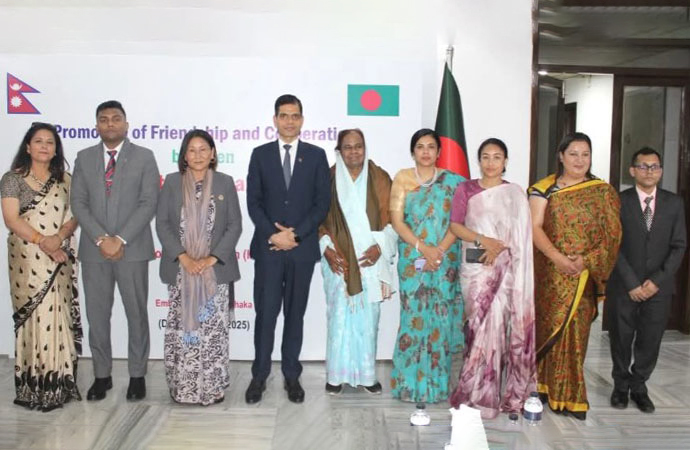









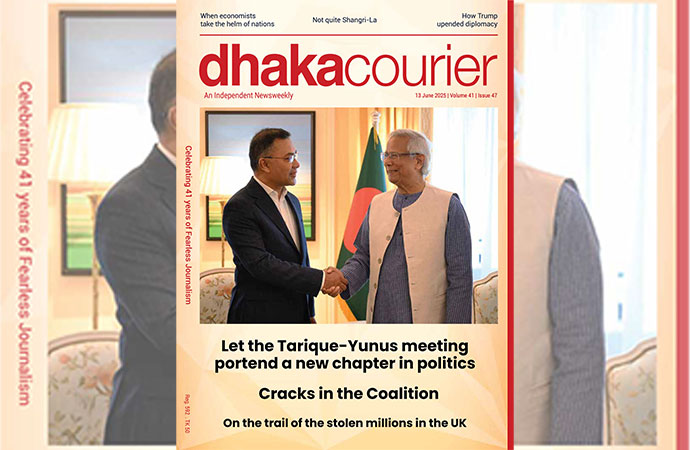
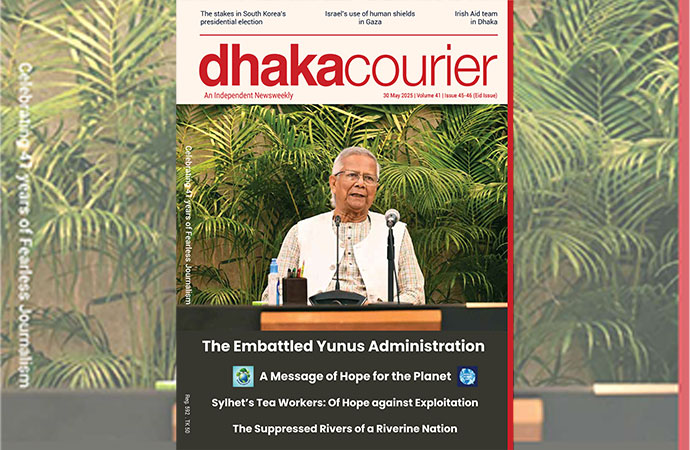
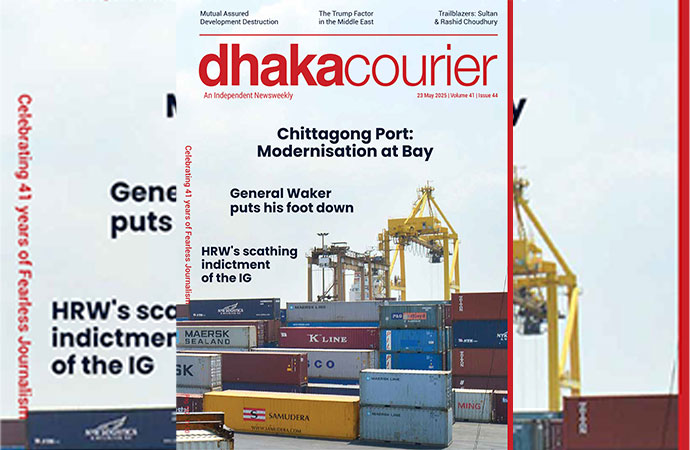

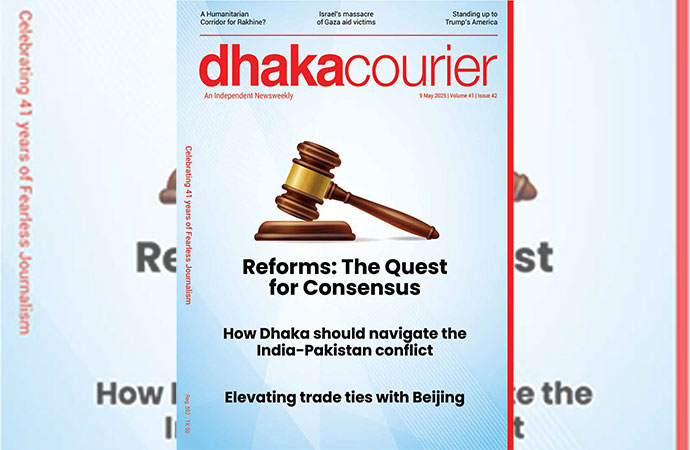

Leave a Comment
Recent Posts
Enayetullah Khan to represent ...
Enayetullah Khan, Editor-in-Chief of United News of Bangladesh (UNB), ...
The tragedy in Ahmedabad touch ...
Air crashes are inherently international incidents, and the emotions t ...
Asset recovery a key focus; breakthroughs from talks ..
'It'll inspire youths to build Bangladesh they dream ..
UK envoy Sarah Cooke happy with Yunus’ visit to Brit ..
Prof Yunus honoured with prestigious Harmony Award b ..